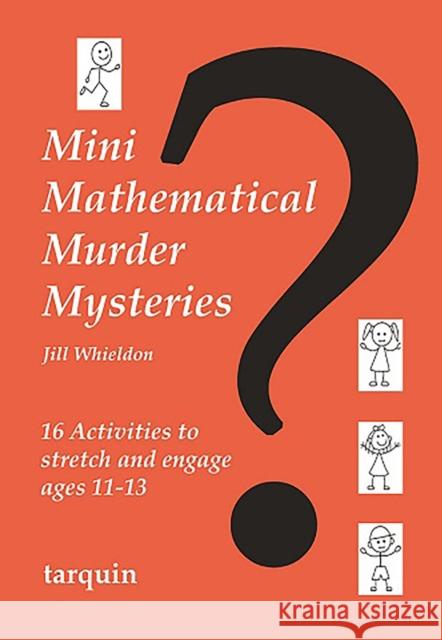Mini Mathematical Murder Mysteries » książka
Mini Mathematical Murder Mysteries
ISBN-13: 9781907550102 / Angielski / Book / 2012 / 36 str.
We all like to think we can solve a murder given the right clues. Here's a chance to use mathematics skills to identify "whodunit" for ages 12-14.
The students are given the data or a diagram to solve a "problem" - which of four characters is a murderer. To find out, the student must solve all or most of the questions on the sheet to identify wrong answers as well as correct ones. Problems are staged, so there is an element of suspense for the individual...and racing between students to solve the mystery.
The topics covered in this book are all included in the year 7 & 8 schemes of work in mathematics. The tasks have been used successfully with older pupils too as a reminder of topics covered previously. They would also be suitable for younger pupils who have met the appropriate language and content. They are likely to take about 40 minutes but this will depend on the ability of the class to coordinate the different aspects of each task.
For ages 13-15 see the sister titles More Mini Mathematical Murder Mysteries.
The book is for both teachers and parents.
TEACHERS
This is a set of consolidation resources rather than a teaching tool. They have worked well with a variety of classes, often putting the students in pairs to enable them to talk about the methods they're using while they solve the "murder." The author has found that their cooperative skills have improved as has their ability to plan and delegate in a bid to "win."
PARENTS
Much more fun than having endless mathematics exercises to trawl through Children will engage with the mathematics here presented in an entertaining way.
Ideal for use in review or other consolidation exercises. They are also great fun for after school clubs such as mathematics clubs, seeking to run short activities. Mathematics days or mathematics weeks will be greatly enhanced by their inclusion.
The students are given the data or a diagram to solve a "problem" - which of four characters is a murderer. To find out, the student must solve all or most of the questions on the sheet to identify wrong answers as well as correct ones. Problems are staged, so there is an element of suspense for the individual...and racing between students to solve the mystery.











